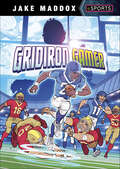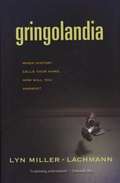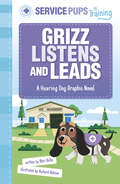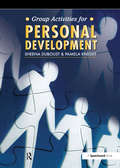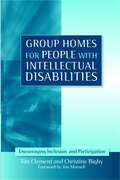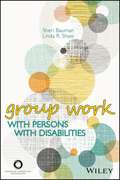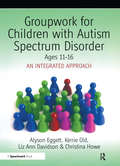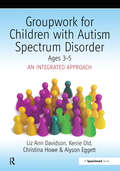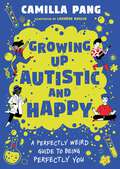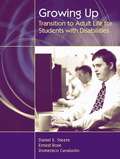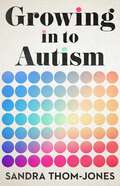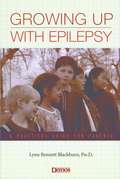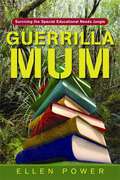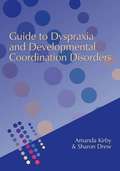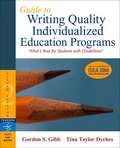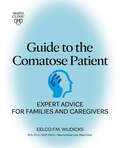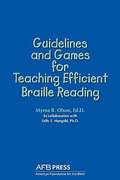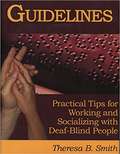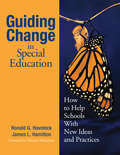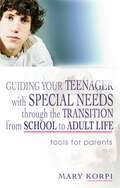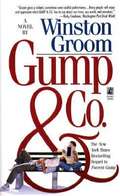- Table View
- List View
Gridiron Gamer (Jake Maddox eSports)
by Jake MaddoxAs much as he would like to, Iako can’t play football. Being in a wheelchair keeps him from hitting the real gridiron. However, Iako makes up for it by being a whiz at his favorite video game, Football Blitz: Turbo. When his friends tell him he should play at a local esports tournament, Iako is hesitant. He doesn’t think he’s that good, and he doesn’t like crowds. But when Iako plays a pickup game and beats the current FB:T champion, he endures a lot of insults from the sore loser. With the support of his friends, Iako decides to enter the tournament to prove he can compete as well as anyone else. Will Iako’s skills help him defeat the current champ again and claim the title?
Gringolandia
by Lyn Miller-LachmannDaniel's papá, Marcelo, used to play soccer, dance the cueca, and drive his kids to school in a beat-up green taxi-- all while publishing an underground newspaper that exposed Chile's military regime. After papá's arrest in 1980, Daniel's family fled to the United States. Now Daniel has a new life, playing guitar in a rock band and dating Courtney, a minister's daughter. He hopes to become a US citizen as soon as he turns eighteen. When Daniel's father is released and rejoins his family, they see what five years of prison and torture have done to him. Marcelo is partially paralyzed, haunted by nightmares, and bitter about being exiled to "Gringolandia". Daniel worries that Courtney's scheme to start a bilingual human rights newspaper will rake up papá's past and drive him further into alcohol abuse and self-destruction. Daniel dreams of a real father-son relationship, but he may have to give up everything simply to save his papá's life. This powerful coming-of-age story portrays an immigrant teen's struggle to reach his tortured father and find his place in the world.
Gritaré tu nombre
by Karole CozzoHay amores que se cantan, otros que se susurran, otros que se esconden...,pero también hay amores que hay que gritar muy alto para que el mundo los oiga. «Me di cuenta de lo bien que se acoplaban nuestras manos aquella vez que me dejaste tocarte. Vi que te sentías sola, muy, muy sola. Me pareció lo más absurdo del mundo..., porque hay alguien que está deseando pasar el tiempo contigo. Todos y cada uno de los días de su vida.» En casa, Jordyn siempre ha sido la hermana paciente y comprensiva, haciéndose a un lado mientras el tiempo de sus padres se consume en el cuidado de su hermano, Phillip, que tiene autismo. Ahora Jordyn se ha cambiado a un nuevo instituto y siente que es la oportunidad que estaba esperando para empezar de nuevo: está decidida a ocultar la existencia de su hermano. Pero las mentiras tienen un coste y Jordyn no tarda en darse cuenta de que, si sigue alejando a todo el mundo de su vida paraque no descubran su secreto, podría perderlo todo, incluido a Alex, por quien siente algo muy especial. ¿Encontrará Jordyn el valor para decirle a Alex cómo se siente ycontarle la verdad sobre su familia antes de perderlo para siempre? La crítica ha dicho...«Romance, drama familiar y un final para sentirse bien.»School Library Journal
Grizz Listens and Leads: A Hearing Dog Graphic Novel (Service Pups in Training)
by Mari BolteBasset hounds have long ears, and Grizz is ready to put his to good use. [CS1] He wants to become a hearing dog and help people. But when Grizz is paired with a pompous pup named Luca, he must use his patience and his ears to learn in this early graphic novel.
Group Activities for Personal Development
by Pamela Knight Sheena DuboustAimed at professionals working with groups that are developing social skills and exploring relationships, this photocopiable handbook is a vital collection of workshops covering specific themes. Each theme is clearly divided into warm-ups, main exercises and closures. Intended to help professionals save on preparation time, the organisation and format of this book reflects its highly practical content.
Group Work With Persons With Disabilities
by Sheri Bauman Linda R. ShawThis one-of-a-kind manual provides direction for leading groups of people with disabilities or groups that have members with disabilities. Viewing disability as a single aspect of a multifaceted person, Drs. Bauman and Shaw share their insight and expertise and emphasize practical skill building and training for facilitating task, psychoeducational, counseling, family, and psychotherapy groups across various settings. Topics examined in Part I include common themes in groups that focus on disability; various group formats, including groups using technological platforms; issues of diversity that exist simultaneously with ability; group composition; ethical concerns; and training considerations and logistical accommodations. Part II focuses on group counseling with clients experiencing sensory, psychiatric, cognitive, and physical disabilities as well as chronic medical conditions. A list of resources, support information, and group exercises completes the book. *Requests for digital versions from the ACA can be found on wiley.com. *To request print copies, please visit the ACA website here. *Reproduction requests for material from books published by ACA should be directed to permissions@counseling.org
Groupwork for Children with Autism Spectrum Disorder Ages 11-16: An Integrated Approach
by Christina Howe Alyson Eggett Kerrie Old Liz Ann DavidsonThis book includes a short, easy-to-read theoretical background to ASD focusing on the underlying impairments and their impact on sensory processing, motor development, play, language and communication skills, social skills, emotional development and behaviour for the relevant age group. Each developmental area is intrinsically linked and progress in one aspect of development is dependent on progress in another so a multi-disciplinary approach is essential. All the books examine the role of various individual professionals while emphasising the need to develop a multi-disciplinary approach combining their areas of expertise. The book also describes a multi-disciplinary approach to groupwork providing practical advice and photocopiable resources to enable readers to: assess individual needs; organise groups (including group members, venue and transport); set individual group targets; plan group sessions (examples of activities for each developmental area are provided); and, evaluate progress. It offers ideas for developing good teamwork, including peer review, and working towards a trans-disciplinary approach where professionals can step into each others' roles where appropriate. This title features 256pp, A4, and it is wire-o-bound. It is suitable for children of ages 11-16.
Groupwork with Children Aged 3-5 with Autistic Spectrum Disorder: An Integrated Approach
by Christina Howe Liz Ann Davidson Ayson Eggett"Groupwork for Children with Autism Spectrum Disorder: Ages 3-5" is the first of three books promoting a multidisciplinary approach to working with children on the autism spectrum. The author team of speech & language therapists and occupational therapists have used their experience of working together in this way to create a practical resource for professionals working with children with ASD in small groups. The book aims to develop the children's skills in seven key areas of development: Communication & language; Socialisation; Play; Sensory; Motor; Behaviour; and, Emotional. Case studies, working examples, photocopiable checklists, assessment forms and session sheets are provided for group facilitators to: assess individual needs; set individual targets; create personalised programmes; plan & run group sessions; evaluate progress; and, carry out peer reviews. Forty photocopiable activities, differentiated according to the developmental area being targeted as well as the developmental level of the child, are also included. "Groupwork for Children with Autism Spectrum Disorder: Ages 3-5" provides an invaluable resource for speech & language therapists, occupational therapists, physiotherapists, play therapists, family therapists, teachers, support staff and all those working to develop the children's skills in small groups. Parents and carers are actively encouraged to participate in groupwork with their child. 'I enjoyed joining in the group and being part of my child's therapy'.
Growing Up Autistic and Happy: A Perfectly Weird Guide to Being Perfectly You
by Camilla Pang'I definitely feel better about myself, about being me, after reading this book.' - 11-year-old reader, ToppstaDiscover how scientific concepts can help navigate everyday human interactions, and help you grow up to be your HAPPIEST YOU!As a child, Camilla loved patterns and putting things in order. She was obsessed with Stephen Hawking, and the only language she really understood was science. Diagnosed with autism aged 8, Camilla saw the world very differently.But with science as her sidekick, she was able to translate ideas she could understand, such as photosynthesis and algorithms, onto things she couldn't, such as dealing with emotions and finding your voice. In this unique and brilliant book, Camilla shares her scientific survival guide to growing up, helping young readers navigate the world around them, giving them the courage to grow up perfectly happy in who they are.
Growing Up: Transition to Adult Life for Students with Disabilities
by Daniel E. Steere Ernest Rose Domenico CavaiuoloCase studies of students with mild and severe disabilities are followed throughout the book to illustrate effective practices that are described. Through case studies and clearly presented content, this book helps readers learn what they can do to assist students with disabilities in achieving positive adult outcomes.
Growing in to Autism
by Sandra Thom-JonesFrom the outside looking in, Sandra Thom-Jones was living a successful life: she had a great career, a beautiful home, a loving family and supportive friends. But from the inside looking out, she was struggling to make sense of her place in the world, constantly feeling overwhelmed and exhausted, and convinced that her challenges with daily life just meant that she had to try harder. In Growing in to Autism, Sandra tells the story of gradually realising she was autistic, and that she experienced the world in ways which were markedly different from non-autistic people. Applying her skills as an experienced and expert researcher, Sandra delved into the literature on autism in adults, learning much more than she had already known as a parent of two autistic boys. Part personal, funny, and enlightening memoir, and part rigorous explication of the nature of autism, Growing in to Autism is a book for everyone. This updated edition includes a revised preface and afterword, in which Sandra reflects on reader responses, how the book has furthered her own growth, and the subsequent changes in her life. Reader feedback has also inspired a fully updated chapter on autistic strengths. In the words of her readers, Growing in to Autism helps autistic people feel &‘understood, validated and less alone&’. It also gives non-autistic readers a genuine insight into ways of understanding and making space for a group of individuals in our society who have so much to offer.
Growing the Circle: Book Six of the Guiding Emily Series
by Barbara HinskeIt’s summertime, but the living isn’t easy. With Dhruv on paternity leave, Emily Main is busier than ever. When she hits an unexpected roadblock at work, can she turn her adversary into an ally? <P><P> Meanwhile, Dhruv and Stephanie discover that parenting a newborn is a challenge—and the baby isn’t the problem. Sylvia interrupts her fun family vacation to take a stand in support of a stranger in need. Will her selfless act find her dancing her way to the love she thought she’d never find again? At the same time, Martha and Doug deepen their bond over a life-changing addition that surprises even their family. <P><P> Follow along as Emily and Garth embrace their expanding world.
Growing up with Epilepsy: A Practical Guide For Parents
by Lynn Bennett BlackburnBlackburn, a pediatric neuropsychologist at St. Louis Children's Hospital, shows parents how to support social development, advocate for a child with epilepsy in the educational system, and provide effective discipline. Early chapters present essential information on understanding epilepsy, behavior management, and school programming. The rest of the book concentrates on developmental stages as they are affected by the effects of epilepsy on social development.
Guerrilla Mum
by Ellen PowerGetting the educational provision you need for your special needs child can feel like an uphill struggle. This book offers clear guidance on how authorities such as Local Education Authorities, schools, the National Health Service and the Government function, what the law entitles your child to, and how you can fight most effectively for the education they need. Basing the book on her own experience of bringing up two sons with special educational needs, Ellen Power describes how she worked with - and in some cases challenged - the authorities to get the right education for her children. Outlining what she did, how she did it, and how you can do the same, she explains clearly the implications of the Special Educational Needs code of practice and the Disability Discrimination Act, as well as giving advice on diagnosis, assessment, and dealing with the authorities. Further sections look at how to address issues such as transition between schools, and bullying. Interweaving real-life experience with practical advice, Guerrilla Mum is essential reading for parents of children with special educational needs and disabilities.
Guide to Dyspraxia and Developmental Coordination Disorders
by Sharon Drew Andrew KirbyBuilt upon the good practice for which the Dyscovery Centre has become so well known, this book takes a broader view of the difficulties that those with additional needs face. It considers whether this is a health, educational or social difficulty and what the wider implications are for the individual and how they manage at home and in the community. The authors look at what happens, what can be done to help and what changes occur as the child becomes an adolescent and eventually an adult. Teachers, SENCOs, teaching assistants, occupational therapists, physiotherapists, speech and language therapists and parents of children with dyspraxia or developmental co-ordination disorders should find this book stimulates their thinking and helps them in their work.
Guide to Writing Quality Individualized Education Programs
by Gordon S. Gibb Tina Taylor DychesThis bestselling guide helps users reduce the complexity of IEP development to seven basic steps, based on the requirements of IDEA 2004. It helps prepare teacher candidates with excellent IEP-writing skills, and gives in-service teachers an accurate resource for their continuing professional development in this critical area. Features include step-by-step instruction for IEP development, using explanation, modeling, practice and formative feedback for self-guided individual or group learning. The introduction of the second edition provides a quick overview of special education and the requirements of IDEA 2004. Additionally, the second edition is based on new case studies with complete IEPs for four elementary and secondary students with mild/moderate and severe disabilities, including transition planning. It also provides practice in differing requirements for students taking alternative assessments and features "Answers to Tricky Questions About IEPs" that teachers often encounter.
Guide to the Comatose Patient: Expert advice for families and caregivers
by Dr. Eelco WijdicksCaring for a loved one in a coma is a distressing time, full of many questions, and often, not as many answers. Guide to a Comatose Patient is a first-of-its-kind book that steps into the shoes of the neurologist, to show the perspective of the staff caring for their loved ones — what worries us, how we think and intervene, what we can and cannot predict, and what we know as a certainty.In our hospital ICUs, there are more than a dozen comatose patients at any given point of time. Causes of coma can range from drug-induced coma—in which medications are used to calm the patient and allow the ventilator to work properly—to coma due to intoxication and coma related to a brain injury. No matter the reason, it can be a distressing time for loved ones. Guide to a Comatose Patient is a helpful guide for any family member or loved one confronted with coma. Author Eelco F. M. Wijdicks, M.D., Ph.D., a leading neurologist and attending neurointensivist at Mayo Clinic, begins each chapter by sharing helpful anecdotes from a career spanning four decades, before diving into the answers to commonly asked questions, such as: · What are the causes of coma? · When will the patient wake up and recover? · When is no recovery expected? · When should we consider organ donation? · What are the rates of survival? While there are many books on families&’ experiences with acute traumatic brain injury and coma, Dr. Wijdicks offers an unusually candid conversation that allows a peek inside the minds of the doctors caring for your loved one. Having had many experiences talking to families having to make difficult decisions at a very difficult time, Dr. Wijdicks&’s message is hopeful while remaining grounded in reality—a reality in which facts must dictate actions. Guide to a Comatose Patient provides important information so that families better understand treatment options, but most importantly, the book offers an open dialogue and optimal transparency to help provide hope and healing through times of grief.
Guidelines and Games for Teaching Efficient Braille Reading
by Sally S. Mangold Myrna R. OlsonThese unique guidelines and games provide ideas for adapting a general reading program to the needs of braille readers and enriching early instruction in braille that are based on research in the areas of rapid reading and precision teaching. Classroom teachers and anyone working with children who are blind or visually impaired will find this classic handbook an invaluable resource.
Guidelines: Practical Tips for Working and Socializing with Deaf-Blind People
by Theresa B. SmithHow does deaf-blindness affect communication? How does one guide a person who is deaf and blind? How does all of this affect the role of the interpreter etc.?
Guiding Change in Special Education: How to Help Schools With New Ideas and Practices
by Dr Ronald G. Havelock James L. HamiltonThis practical, step-by-step guide illustrates and describes the seven stages of school change and provides explanations and advice for incorporating each stage into your change process.
Guiding Stars: The Guide Dogs for the Blind Association
by Peter IresonA selection of writings, recollections and images chosen to convey some of the joys and anxieties, achievements and disappointments experienced by the generations of people who have either used guide dogs or helped to provide them.
Guiding Your Teenager with Special Needs through the Transition from School to Adult Life: Tools for Parents
by Mary KorpiWhen teenagers with special needs transition from school to adult life, both they and their families are faced with many new decisions and challenges. This book provides advice and information to help families prepare for that transition, and make it happen as smoothly and seamlessly as possible. Mary Korpi recognizes the impact of this changeover period and emphasises the need for young adults to be included in all decisions and discussions about their future, thereby developing self-advocacy skills. The first part of the book explains how families can adapt everyday routines to develop the young adult's essential life skills. The second part provides information on programs and support services, and stresses the importance of devising an effective transition plan to help teenagers explore avenues suited to their personal goals and abilities. This is invaluable reading for families of teenagers with disabilities who are preparing to move on from school life.
Gump and Co.
by Winston GroomFrom the book Jacket: "That latter-day Huck Finn is now in his forties and back. ten years after we last caught up with him...more adventurous twists and turns." -George Christy, Hollywood Reporter Forrest Gump captured our hearts in the #1 New York Times bestselling novel Forrest Gump, and in the blockbuster film, winner of six Academy Awards® including Best Picture and Best Actor. Now he returns in the long-awaited sequel to the book hailed by Larry King as "the funniest novel I have ever read." A little older, and wiser in his unique way, Forrest is still running-this time straight into the age of greed and instant gratificatior known as the 1980s. Whenever I really get stumped, I go visit Jenny's grave. She tells me she's always rooting for me. The Bubba Gump Shrimp Co. has gone bust and now Forrest is flat broke, sweeping floors in a New Orleans strip joint, when a fresh opportunity to play championship football puts him back in the limelight-and in the money. But fate turns fickle again, and he's soon ou on the road selling phony encyclopedias and trying to raise his son, littk Forrest, who needs his father more than ever. Forrest's remarkable touching, and utterly comic odyssey has just begun: in store for him is an explosive attempt at hog farming; his own dubious recipe for adding life to New Coke; an encounter with Oliver North of the Iran-Contra affair; and a chance yet again to unwittingly twist the nose of history. "As comic voices go, Forrest Gump is a classic." -Robert Plunket, The New York Times Book Review "GUMP & CO. is a delight."-Patricia Holt, San Froncisco Chronicle "Forrest has mellowed a bit, but this is a well-told tale with a keen satirical edge Is GUMP & CO. a worthy follow-up to the original adventures of Alabama's newest folk hero? Sure enough, and it's also got enough surprises along the way that you'll zip through its pages trying to figure out where Forrest will finally land. . . . Groom's ... satire now has a Kurt Vonnegut-like quality. ... Will GUMP & CO. be another Oscar-generating machine would it be turned into a film? Could be, but in the South we've always felt it was enough just to be good storytellers. And in that we are correct." -Dave Helms, Mobile Register
Gus the Gulping Goat: Targeting the g Sound (Speech Bubbles 1)
by Melissa PalmerGus loves to gulp yoghurt, but he is not the only one. Has he met his match? This picture book targets the /g/ sound, and is part of Speech Bubbles 1, a series of picture books that target specific speech sounds within the story. The series can be used for children receiving speech therapy, for children who have a speech sound delay/disorder, or simply as an activity for children’s speech sound development and/or phonological awareness. They are ideal for use by parents, teachers or caregivers. Bright pictures and a fun story create an engaging activity perfect for sound awareness. Please see other titles in the series for stories targeting other speech sounds.
